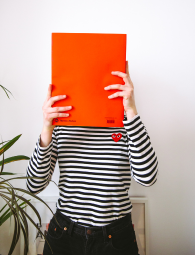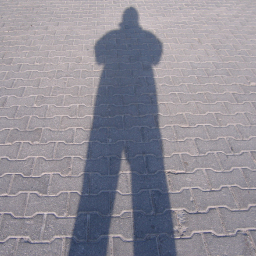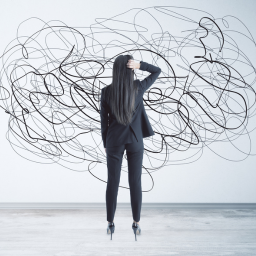A Virtual Micro-class
The Power of a Positive No
This time for women in particular!
Tuesdays, October 3 & 10 at 11 am pacific

You know the moment when you’re about to walk into a room where people are counting on you for your input?
When suddenly, it's like you vanished. Someone else is in your clothes.
Out of the blue a phantom Imposter floods you with doubts only you hear:
"I feel like a fake!"
"I should be someone else"."
"What if they find out?"
We've all been there. Entering a client or team meeting, board or conference room -knowing we've earned our place, yet somehow feeling it's all pretend.
Here's what's wild:
71% of North American professionals experience this exact feeling.
50% report it stopped them from pursuing opportunities.
62% of employees globally have experienced it.
In tech, 1 in 2 engineers report imposter feelings -women even more so.

This imposter swoops in to erase well-being, sour confidence and gum up professional advancement.
Throw into the mix any "introverted" tendencies lying about and you've got yourself a perfect storm for second guessing yourself.

You’d think success would quiet the doubt.
Not so.
In fact, it can get louder.
It raises the stakes with more people counting on you.
More visibility. More ways to fall.
A client said "I've built this company from scratch. I know every detail. But sitting in that room it can feel like I'm pretending to be CEO." A young doctor spoke along those same lines. So did a product team manager and a strategy designer.

As a leadership coach I've seen how savvy achievers, people with active mind-sets who competently juggle multiple high stakes projects, can simultaneously be frighteningly adept at finessing ways to cut themselves down.
Or shut themselves up.
It's a paradox on repeat:
Folks like you, with creative mind-sets, who see the gaps, do the research and design strategies of possibility. And who possess the insightful humility of knowing what you don't know.
As a new teacher I once let students grade their own projects. You may guess what happened: students whose work excelled downgraded themselves.
Part of what's called the Dunning-Kruger effect, individuals with high ability often underestimate their competence.

A creative questions themself. It's inherent to the territory.
Self-doubt chases you down until you figure out how to configure it.
I have enormous respect for, and am intrigued by, the hidden roadblocks people prone to innovating create for themselves.
I've observed how underuse of creative agency through questioning your worth or if you deserve to be there at all, costs you -and the team, in wellness and competitive edge.
Reconfigure Imposter Syndrome not as a phantom but as a messenger.
Not as a problem to be solved but a portal cueing a new direction.
Well-managed, self-doubt signals competence, not deficiency. Whether you mention it in interviews or not, it's part of your value proposition.
Respect your quandaries.
Don't collapse creative doubt with self-doubt.

Here’s the reframe:
your future leadership persona is now ready for you!
Feelings of hesitancy don't have to be evidence of being a fraud.
It can be proof you’ve outgrown the intensity of the call to be someone else, in uncomfortable clothes.
Consider you may just be feeling more at home in a lab coat of your own design.
Imposter Syndrome has its Job-To-Be-Done, but so do you.
You showed up?
You just arrived to the moment?
The question isn't whether you belong.
The question is what will you do with the fact that you walked through that door?
When you feel like you don't belong, maybe you're meant to change what happens in that room.
Imposter as Invitation
Before you go, here’s one move I coach leaders to practice:
Next time your Imposter pipes up —
Be ready to respond.
Talk back.
Rehearse what you’ll say.
Then pause & reframe the Imposter as an invitation —
rehearse the energy of the words you’ll say to it —worth, freedom, confidence?
That’s how you shift from doubt to presence.
(Want future practices like this? Subscribe or drop me a note.)
elle@ellevateyou.com

71% of North American professionals experience this exact feeling
(Kickresume Aug – Sept 2025).
50% report it stopped them from pursuing opportunities (Altis Technology, Aug 28, 2025).
62% of employees globally have experienced it (Safety & Health Magazine, Aug 24, 2025).
In tech, 1 in 2 engineers report imposter feelings -women even more so (Guenes et al., arXiv 2023).


